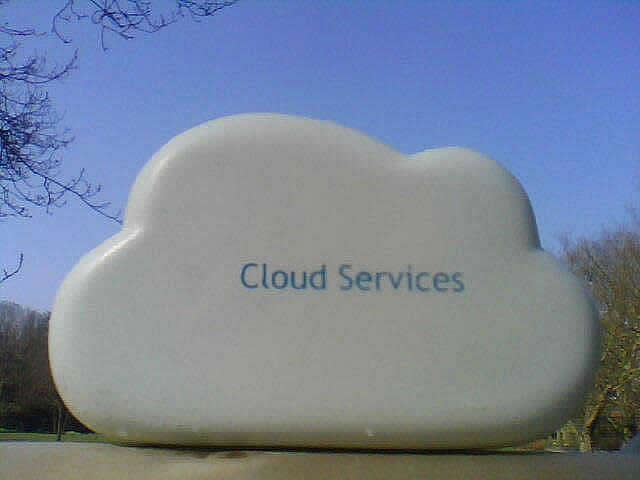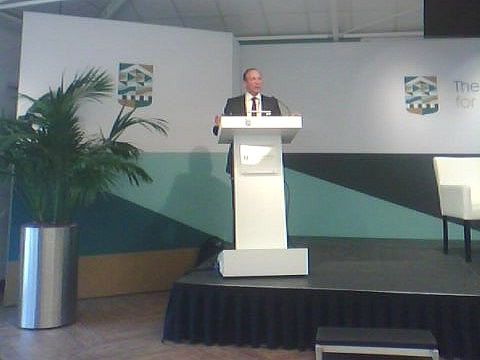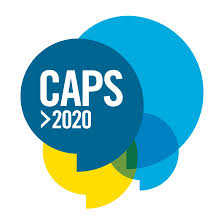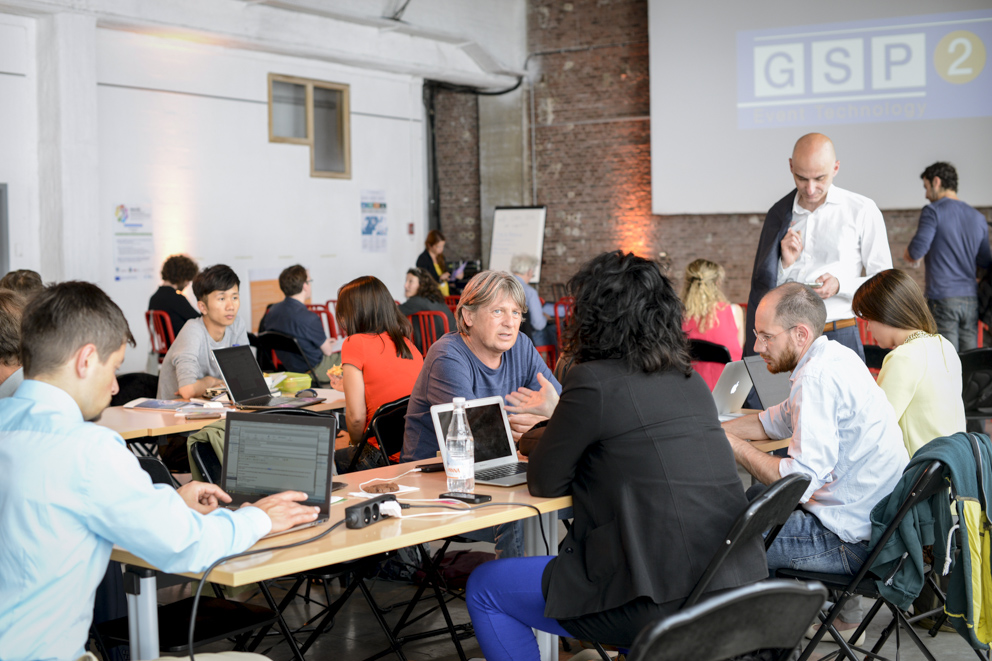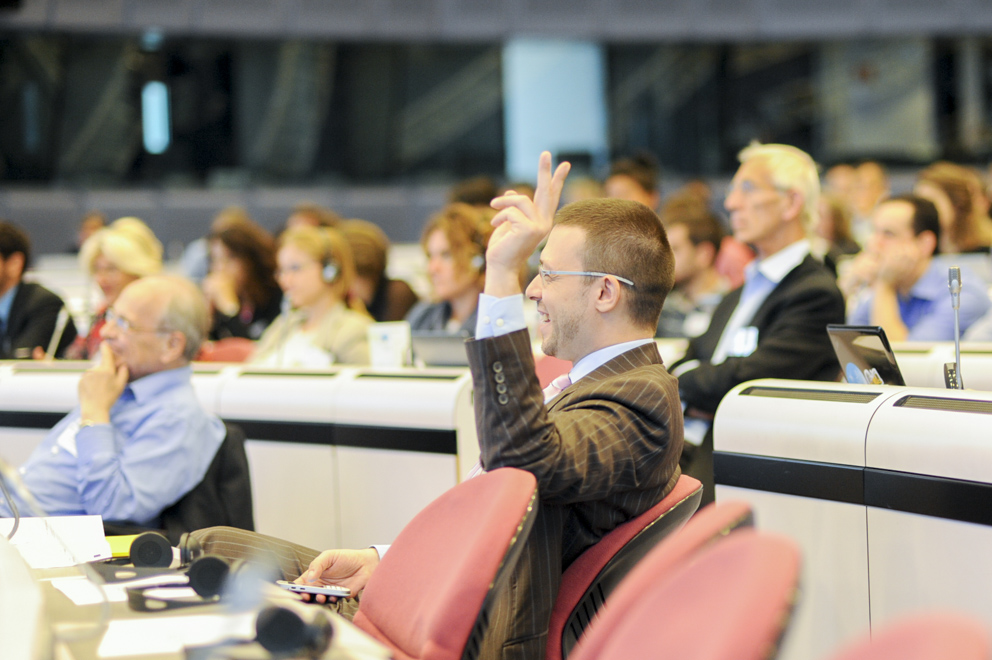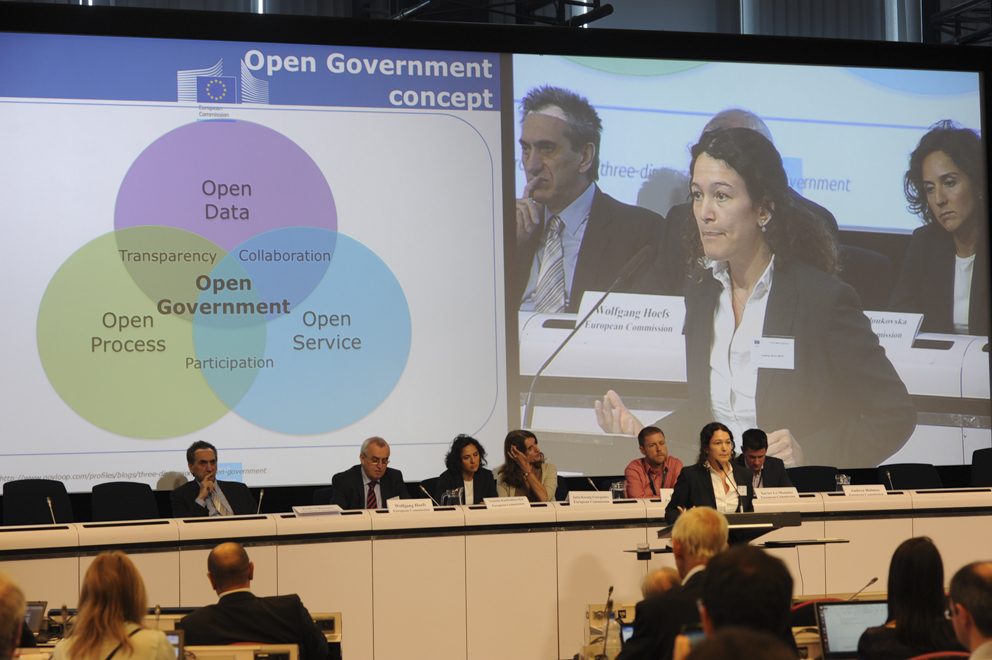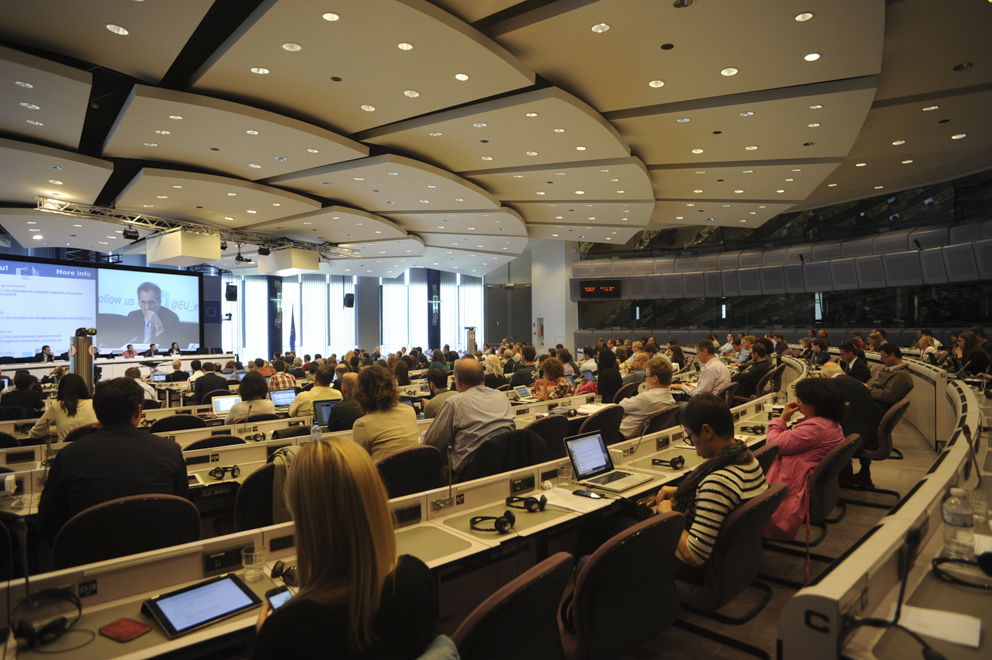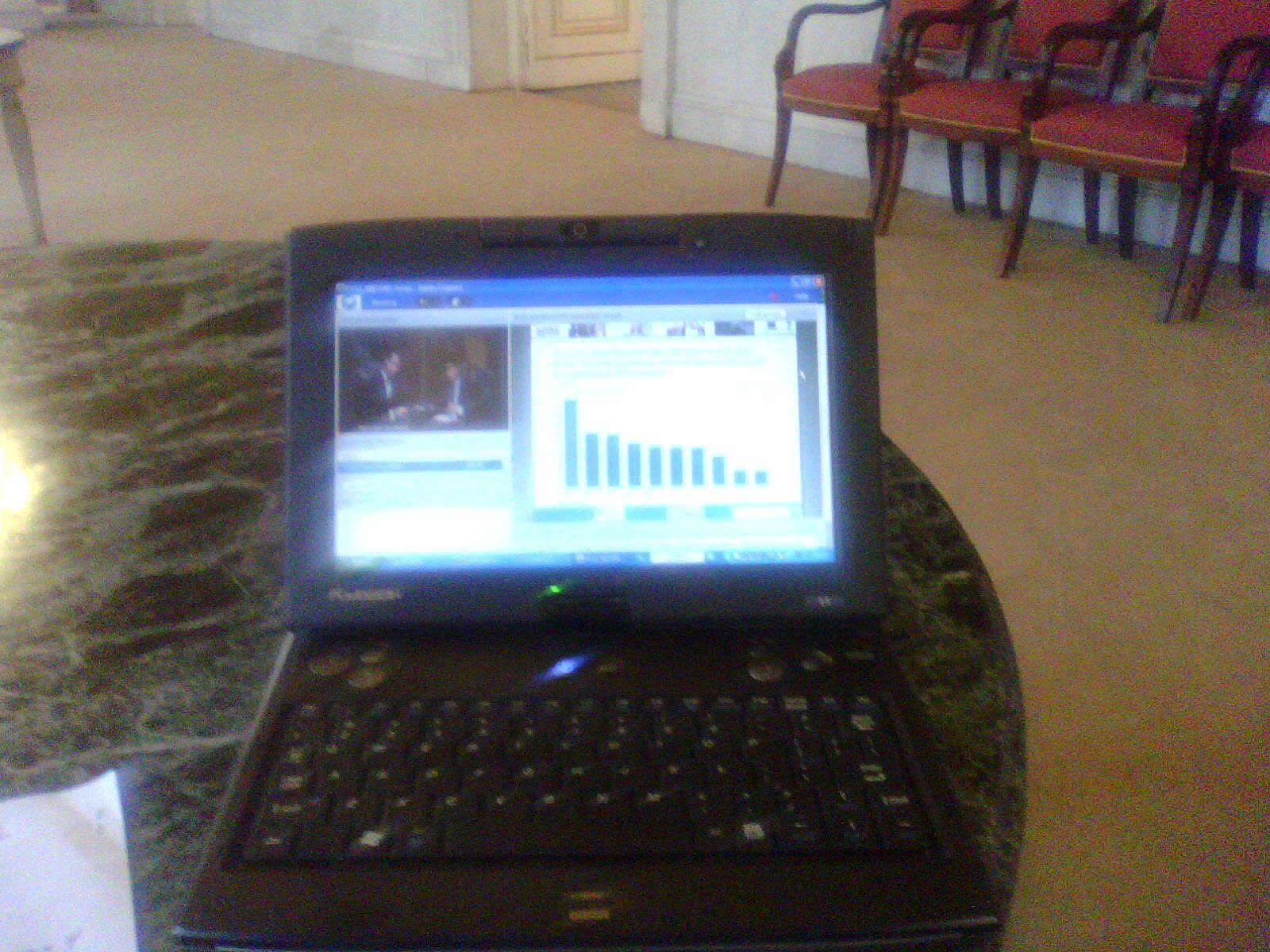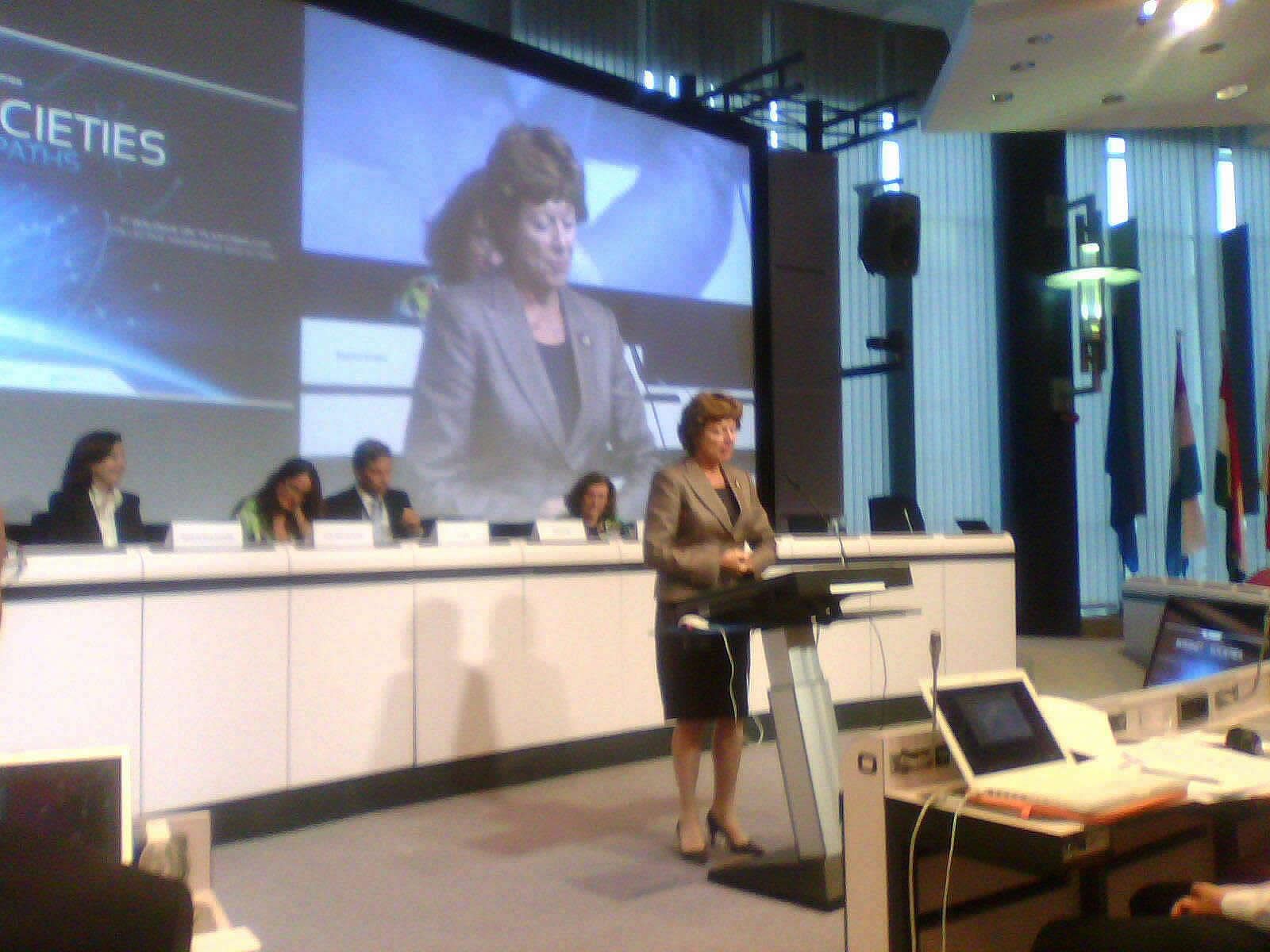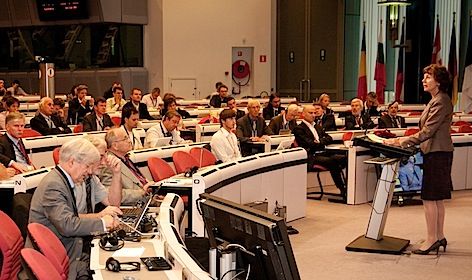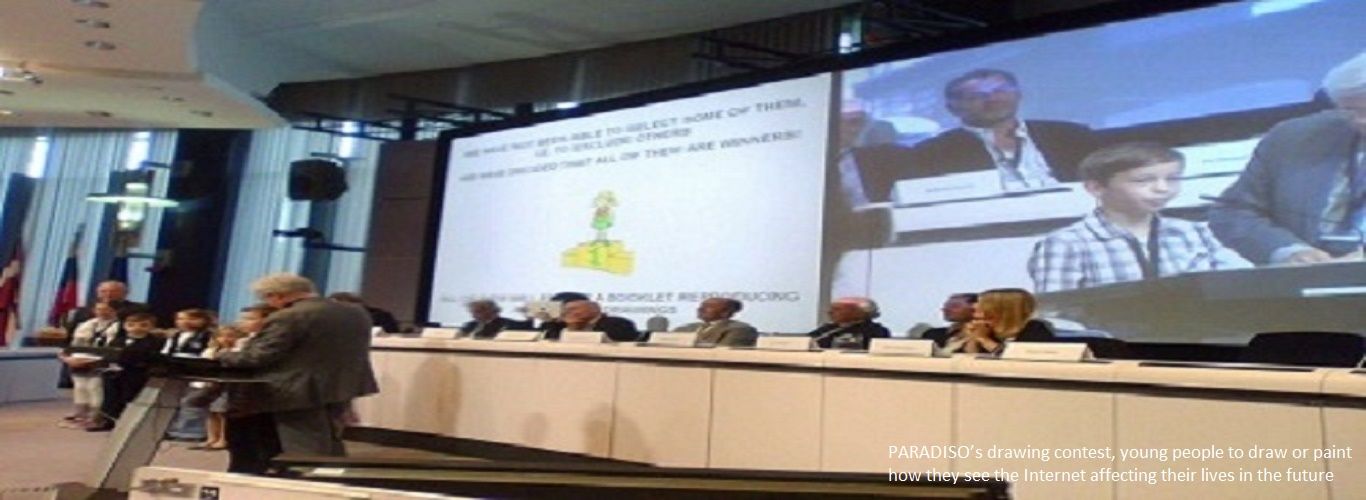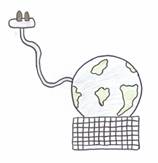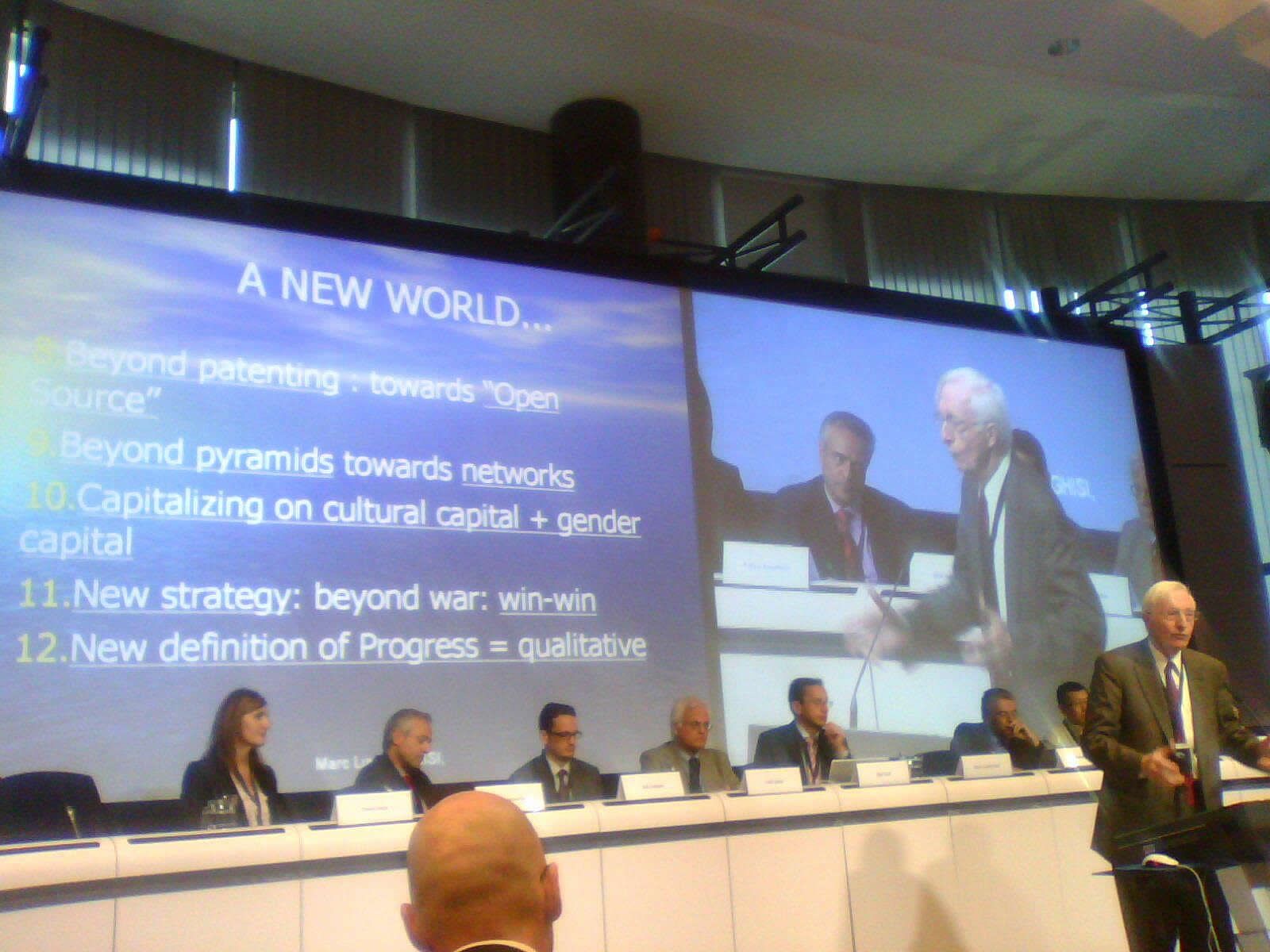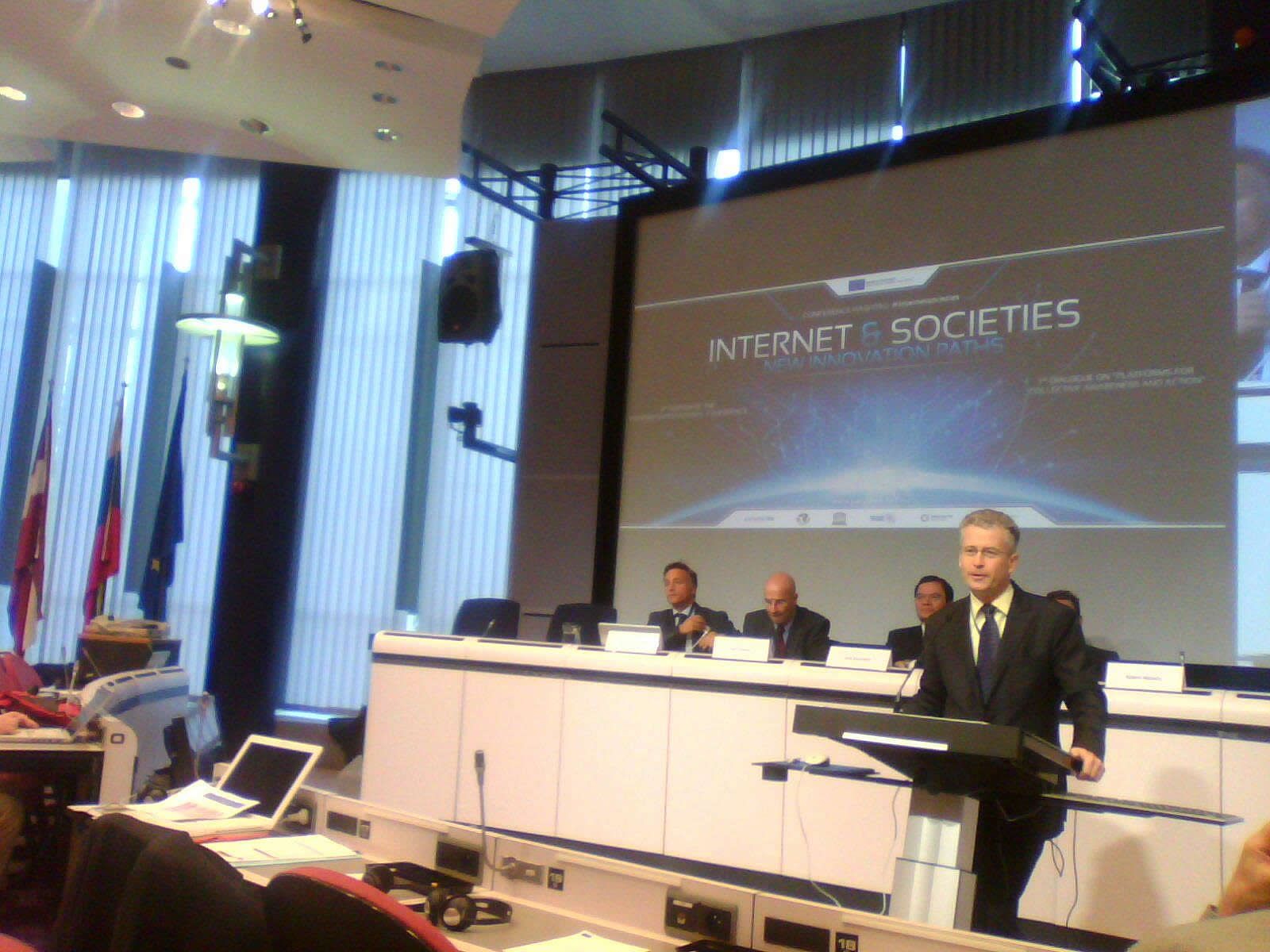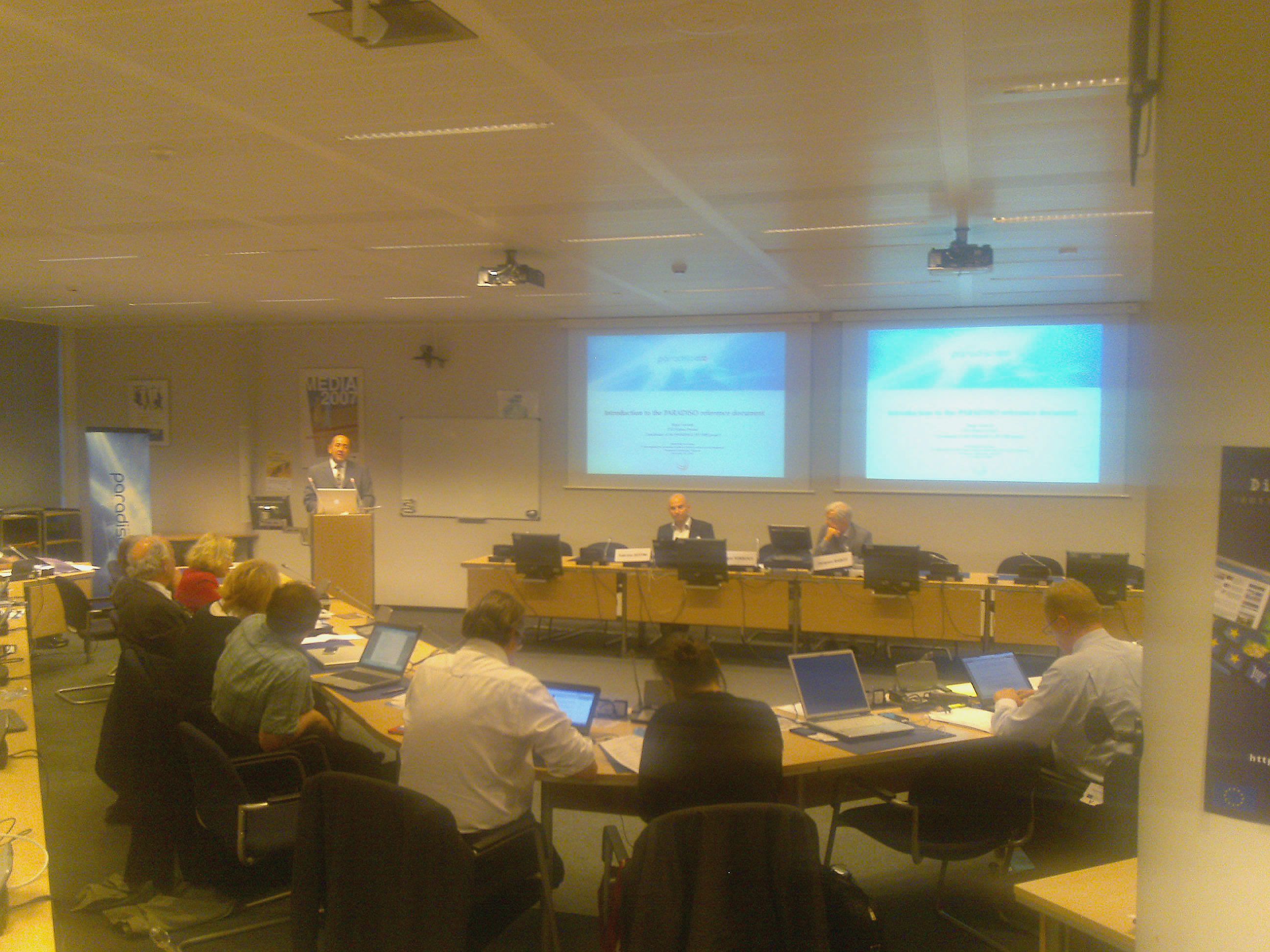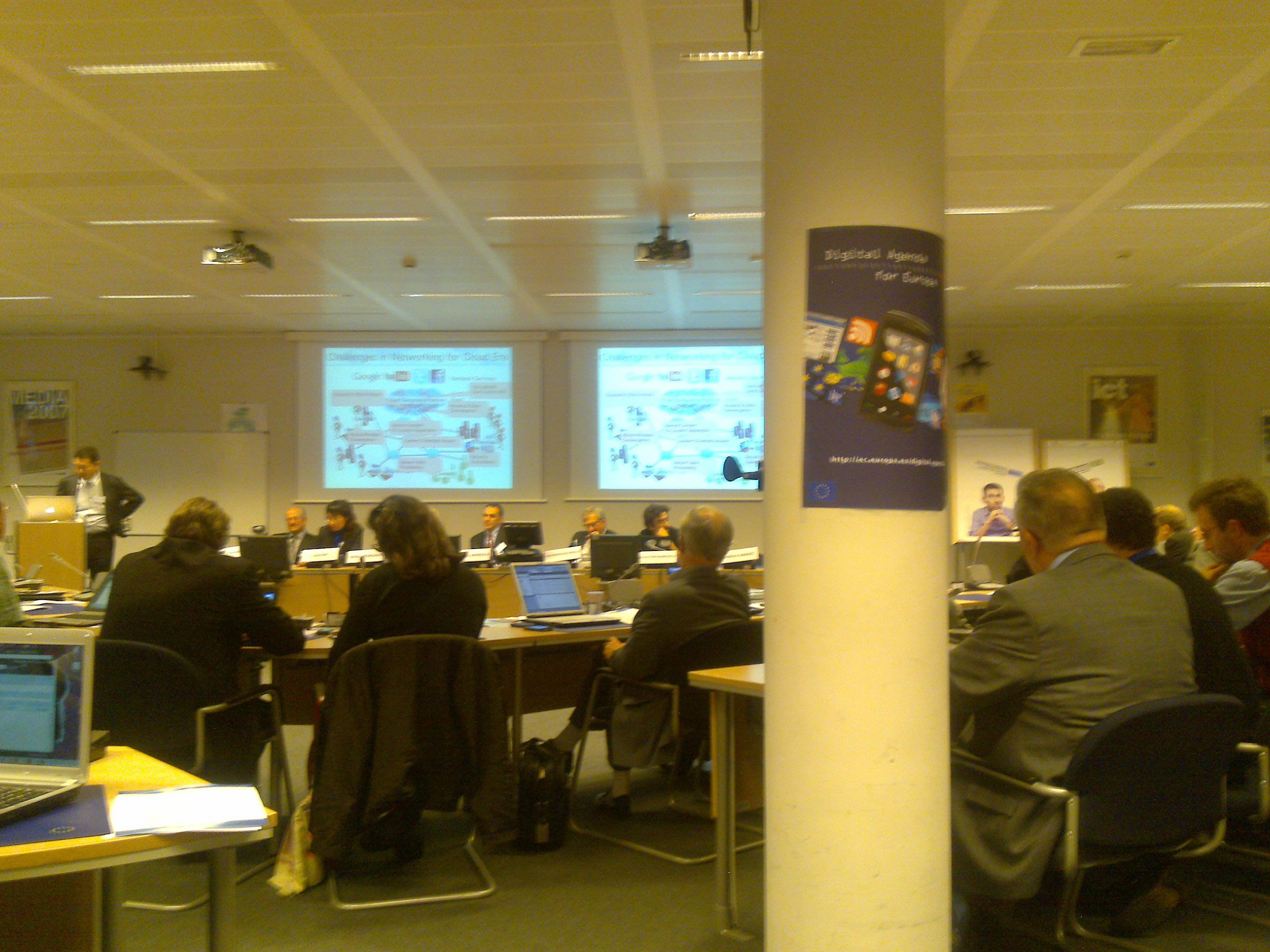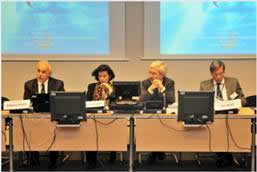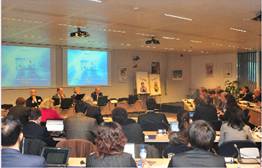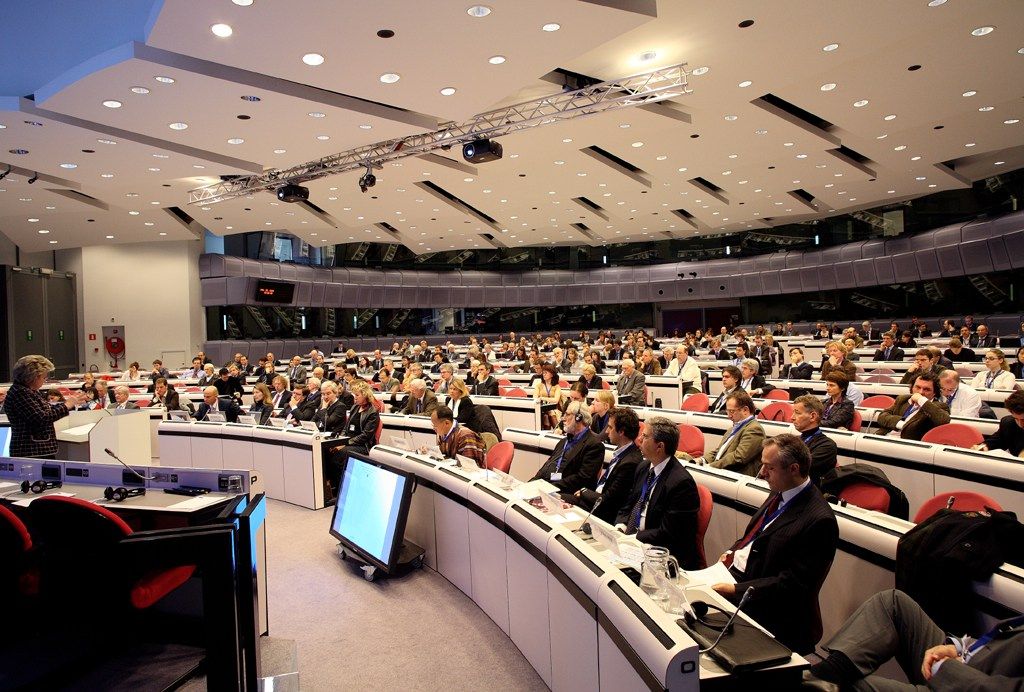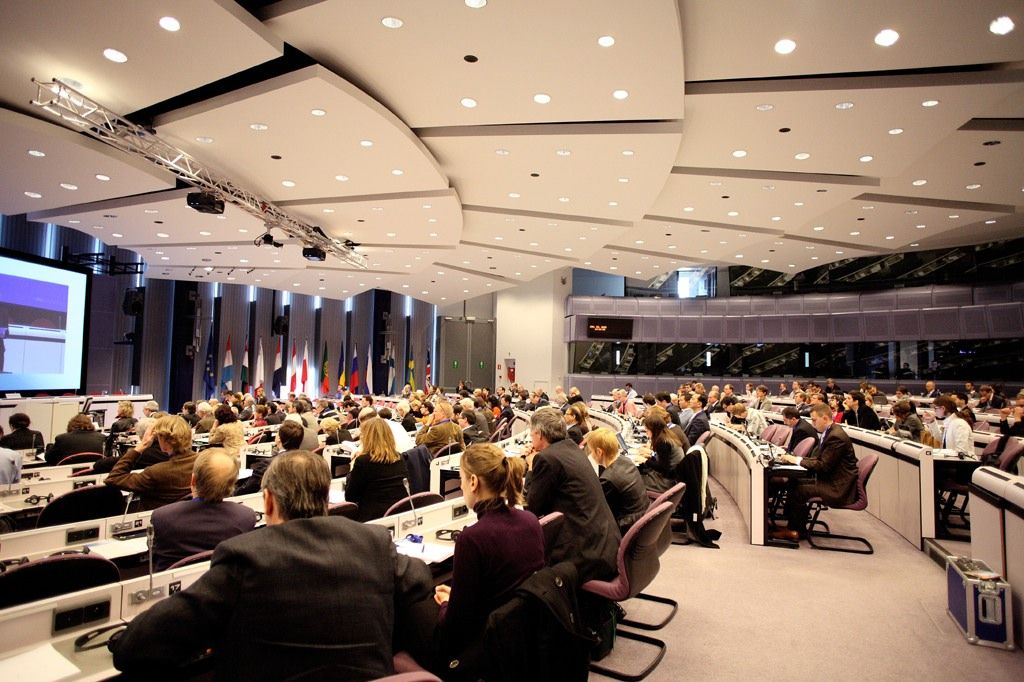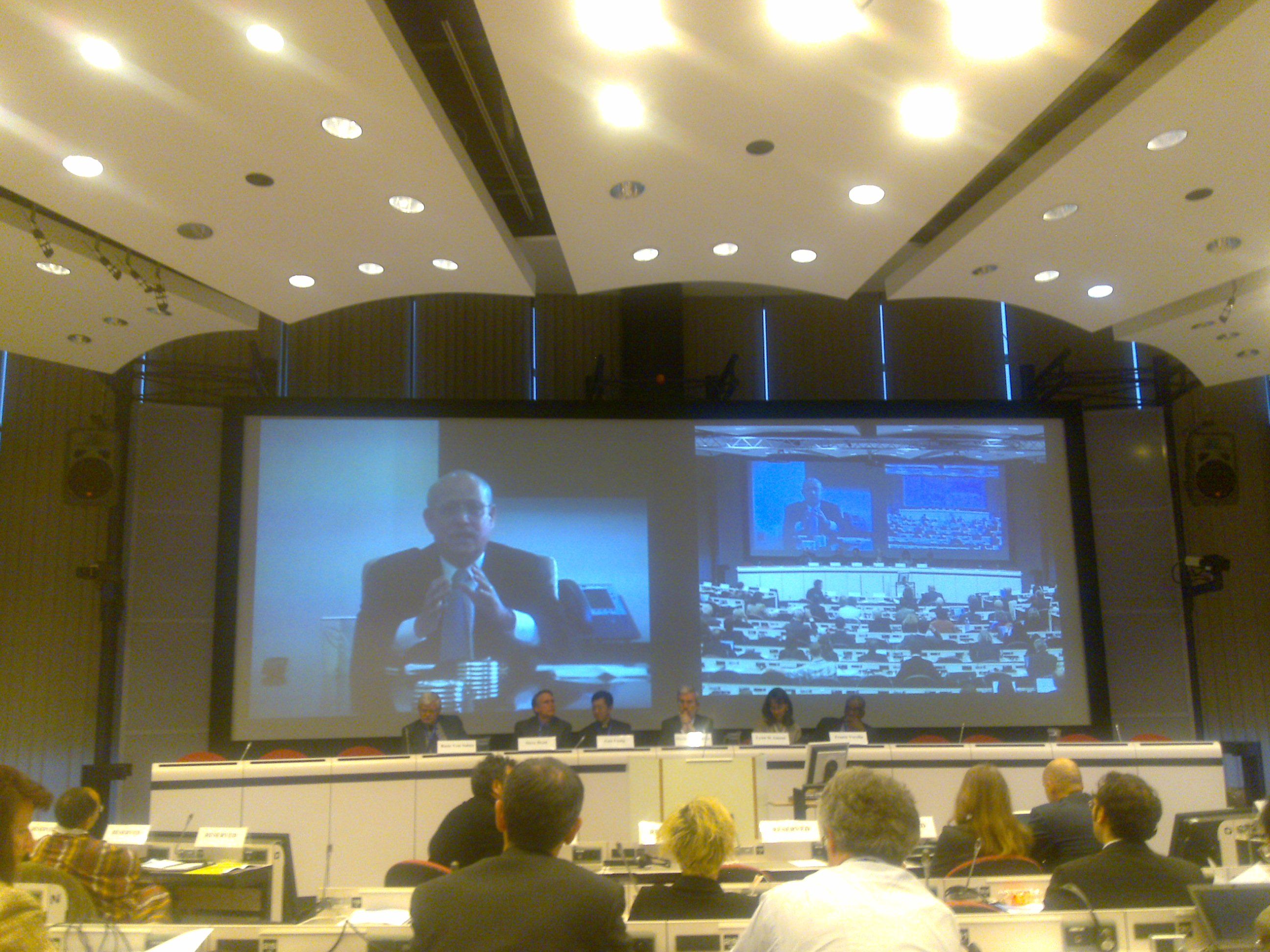| Presentations:
Lynn St Amour, President & CEO, The Internet Society (presented by Frederic Donck, Director European Regional Bureau at ISOC)
Michael Remmert, Deputy Head, Directorate of Policy Planning, Directorate General of Democracy and Political Affairs, Council of Europe: Understanding the interactions between Internet and societal developments
Visions of the future of our societies, chaired by Ziga Turk, Secretary General, Reflection Group on the Future of Europe: Internet does change everything
Peter Johnston, President, International Advisory Committee, Club of Rome: Innovation for Energy and climate security smart green growth
Yves Punie, Senior Scientist, JRC/IPTS: Social Media and User Empowerment a trendo or a vision
Ruben Nelson, Executive Director, Foresight Canada: Civilization transformation At what scale must we consider paradigm change
Afonso Ferreira, Scientific Coordinator for international relations, CNRS - INS2I: The world in the Midst of the digital Revolution and beyond
David Dickinson, Founding Associate, Unlike Minds Limited, UK: Introduction to Unlike Minds Cloud Relevance
Hans van Willenswaard, Project Director, School for Wellbeing Studies and Research, Bangkok: Visions on the future of our societies
Luis Rodriguez-Rosello, Director, Converged Networks & Services Directorate, DG Infso, European Commission: Visions of the Future Internet A European R&D perspective
Sirkka Heinonen, Head of the Technology Futures Forum, VTT, Finland: Future of the Internet Paths to Paradise or to Digital Demise
Dimitri Papadimitriou, Principal research engineer, Alcatel-Lucent Bell Labs CTO: Vision of the future Internet
Akihiro Nakao, Professor, University of Tokyo, Japan: Advanced Network Virtualization Research projects for Future Internet
Ward Hanson, Policy Forum Director, Stanford Institute for Economic Policy Research: PARADISO Comments
Lina Shi, Researcher, Institute of Economy and Policy Research, China Academy of Telecommunication Research: The impact of eCommerce on Chinese employment market
Jonathan Cave, Senior Research Fellow, RAND Europe and Senior tutor in Economics, Warwick University: Visions of the Future Internet
Roger Torrenti, PARADISO project coordinator: PARADISO reference document
Roberto Peccei, Vice-Chancellor for research at UCLA and President of the Italian chapter of the Club of Rome: Closing remarks for the 2010 PARADISO workshop |
